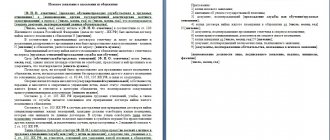A homeowners' association is an organizational and legal form of a legal entity, when all expenses are paid by the owners themselves - residents from personal sources, i.e. such an enterprise cannot engage in economic activities and make a profit, but is intended for non-profit public functions. Therefore, the HOA board weighs each expense item. Among the largest of these is the wages of hired workers. If it is almost impossible to do without a cleaner, an electrician and a mechanic, then the issue of hiring an accountant is moot. Does an HOA need an accountant, what kind of accountant should he be, what responsibility should he bear, what rights should he have, what kind of agreement does he fill out when hiring?
Responsibilities
Despite the non-economic orientation of the HOA's activities, it is obliged to keep records of various values and funds on its balance sheet. This necessity is imposed by civil legislation - in Article 291 of the Civil Code, as well as by the 402nd Law on Accounting.
Accounting for the income and expenses of a partnership requires an employee who can conduct it skillfully - an accountant.
In the HOA, as mentioned, other people also work - a janitor, a cleaner, an electrician, a plumber, etc., each of them needs to draw up labor documentation and pay wages with personal income tax, as well as transfer insurance contributions to the extra-budgetary system, maintain document flow with counterparties and regulatory executive authorities.
The most important part of the activities of the HOA is mediation between residents and utility services. Calculation of payments, timely sending of notifications and payment orders, monitoring of payment of utility bills - all these functions are assigned to the accountant.
Since the HOA budget is limited, the hired accountant is also responsible for personnel documentation - all operations with personnel go through him, and analytical and economic activities - drawing up forecasts, plans, assessing the effectiveness of the chosen path of the organization, calculating performance indicators, etc.
How to keep accounting records in an HOA using the simplified tax system? Step-by-step instructions and wiring
- Collections from the population.
- Calculation of membership dues for the needs of major repairs.
- Calculation of utility payments to premises owners.
- Payment of all submitted invoices from suppliers.
- Calculation of home maintenance costs.
- Other costs that are also required to be accrued.
- Name of the register and its details.
- The name of the entity that is accepted is called the economic entity. It is on his behalf that the register is filled out.
- The main period for maintaining the register, as well as its compilation.
- Classification of all accounting objects in our care.
- Information about in what currency and in what measurements all transactions with funds are carried out.
- Mandatory reference to the initials and other information about the persons who are, in one way or another, responsible for the operation.
- At the end of the completed register, the surname, first name and patronymic of the responsible person, as well as his signature, are placed.
Who can hold the position
Considering the listed tasks and functions of an accountant and the financial capabilities of the HOA, the requirements for this employee will be high - fulfilling the main role, as well as an economist and personnel officer. Among the first of them are specialized education and experience in working with accounting software and performing diverse official duties. It is optimal if the candidate has previously worked as a chief accountant.
Requirements
So, the key requirements for an HOA accountant:
- experience as an accountant in the housing and communal services sector - at least 3 years;
- Experience as a chief accountant - at least 1 year;
- knowledge of the 1C 8.3 program and VDGB;
- knowledge of current legislation, legal framework, personnel management, labor standards;
- possession of the necessary base for office work;
- knowledge of the accounting features of housing and communal services, homeowners associations and management companies;
- use of computers and office equipment at a high level;
- knowledge of Excel and its analogues;
- monitoring news in the field of accounting, taxes, finance, judicial practice, banking, international accounting standards;
In addition to professional requirements, personal qualities are important - the ability to perform large volumes of work and navigate various documentation - personnel, accounting, business, tax, cope with psychological and physical stress, endurance and stress resistance, energy, discipline and organization, mathematical thinking, good memory, attentiveness and other characteristics necessary for such a responsible position.
Taxation of HOAs under the simplified tax system in 2019
The HOA keeps records of targeted funds in account 86 “Targeted Financing”. For account 86, it is necessary to open sub-accounts based on the sources of funds received. Let's consider the accounting of HOA fees, except for payments for housing and communal services, the accounting of which will be discussed below.
Responsibilities and rights
The responsibilities of an accountant for an apartment building include:
- Maintaining primary accounting records - accepting and withdrawing various assets and valuables;
- accounting for cash flows in the company's accounts - inflows and outflows;
- operations for calculating payments for utilities and others:
- water;
- gas;
- electricity;
- telephone communications;
- drains;
- payment for an apartment;
- contributions to the capital of the HOA;
- issuance of payment books for owners;
- calculation and transfer of labor remuneration for HOA employees - both permanent and variable;
- monitoring the receipts and expenses of material assets for their compliance with estimated data;
- calculations and transactions for payment of services from suppliers and utilities;
- calculation and payment of taxes, insurance premiums and other payments;
- preparation, maintenance and timely submission of reports for fiscal and control authorities - a single calculation of contributions, 4-FSS, RSV-1, declarations under the simplified tax system or another regime, 2-NDFL certificates, reports on HOAs, VAT documentation, etc. .;
- preparation of documentation for the founders of the partnership - reports on the work done, expenses, balance sheet, etc.;
- fulfillment of residents' requests, so-called. “turnover” - registration, deletion, change of registration information, generation of utility bills, certificates, etc.;
- work as an employee of the personnel department - drawing up employment contracts, issuing orders for acceptance or dismissal, creating job descriptions, calculating vacation pay, sick leave, compensation, etc., maintaining time sheets, work books, and other forms of personnel records.
Most HOAs have introduced electronic payment methods, so in this case, the accountant also needs to work with residents’ accounts - regularly enter the latest payment statuses for payments and debts, and post completed transfers of funds.
Rights of an HOA accountant:
- collect tenants' debts using established, lawful methods;
- make an inventory of material assets for compliance with the balance sheet of the HOA for control purposes;
- prevent inappropriate, damaging or illegal spending of funds from the HOA and its assets;
- sign and seal the organization’s documents and certify them;
- monitor the legality of management and other decisions of the HOA board;
- analyze cash flow;
- act as a representative of the HOA when interacting with counterparties;
- submit requests for referral to advanced training, training, retraining.
It can be seen that the rights and responsibilities of an accountant in an HOA are similar to these concepts in any other enterprise - maintaining documentation, ensuring the legality of activities, organizing income and careful use of resources.
Accounting in HOAs
If the renovation of an apartment building will be carried out with the involvement of specialized contractors, then account 60 “Settlements with suppliers and contractors” will correspond with the debit of account 20 “Main production”. Repayment of debt to the contractor when making payments in cash will be reflected in the debit of account 60 “Settlements with suppliers and contractors” and the credit of account 51 “Settlement accounts”. Write-off of repair costs reflected in account 20 “Main production”, as in the previous case, will be made at the expense of targeted financing.
We recommend reading: The birth of a child in a young family
From paragraph 10 of Article 21 of Law No. 402-FZ, it follows that simplified methods of accounting, including simplified accounting (financial) statements, for homeowners associations that have the right to use such methods in accordance with Law No. 402-FZ, must be established by a federal standard. However, today there is no such standard.
Responsibility
Unlike service employees, who are responsible for the property entrusted to them for work and the quality of the actions performed, the accountant bears responsibility of a higher degree and a wider range:
- failure to perform job duties or performing them in an inappropriate manner;
- refusal to obey management;
- subordination to management in unlawful acts;
- committing illegal actions and transactions;
- causing material and financial harm to the partnership - theft, concealment of information, submission of knowingly false data, late payments, late execution of bank orders, etc.
Since the accountant controls and records data on cash flows, pressure may be placed on him to commit financial and economic violations of the law. In this case, you need to require written and official registration of the requirements and then send the case for consideration by the HOA commission, which is created by residents to control the partnership.
Employment contract
Although the accountant, after being hired, will deal with personnel issues, incl. conclusion of employment contracts, another person must draw up an agreement with him.
The agreement will become the framework for the accountant’s actions - after all, he has direct access to the residents’ finances and valuables. For the employee himself, this is a guarantee of receiving all established social and labor rights.
For hiring, an order or instruction is issued. To dismiss an accountant, it is necessary to check and reconcile assets and liabilities, the state of documentation and accounting in general.
Elements of the contract:
- main provisions - about the date, place and other parameters of the transaction, the parties;
- obligations and rights of the employer and employee;
- probationary period and conditions of admission to the staff;
- labor regime;
- working conditions and pay;
- provided social and labor rights - compensation, vacation pay, sick leave, etc.;
- liability of the parties;
- conclusion.
At the end, the details of the parties, their signatures are indicated, and the seal of the HOA is affixed.
To change the terms of the contract, additional agreements are concluded indicating the canceled clause, or replacing the clause with a new one, as well as adding additional rules.
Job description
It is clear from the previous sections that an accountant performs various and intensive tasks. So that both the accountant and the manager represented by the chairman of the HOA do not have claims against each other regarding the issue of the employee’s duties and work limits, a job description is drawn up - a detailed document about the functions of the accountant.
The instructions are issued by the manager and approved by him after written review by the accountant in a receipt.
Instructions:
- general information;
- requirements for an accountant and his duties and rights;
- responsibility;
- conclusion.
If the parties have revised the provisions of the document, for example, added new responsibilities, changed payment standards, or, on the contrary, reduced the number of tasks and functions, usually an additional agreement is not formed, but a new instruction is drawn up, subject to certification by management and registration of the number and date.
Features of work
From an accounting point of view, these features are:
- funds of the organization - deposits of residents;
- usually a special taxation regime - simplified taxation system;
- some residents may refuse to participate in the HOA, then separate agreements are formed with them, and their contributions are taken into account differently;
To comply with all these nuances, you need an experienced and qualified worker.
An accountant in an HOA is needed just like the working staff. This must be a universal worker who understands all legislative areas of the partnership’s activities, honestly runs the enterprise and cares about its stability.
Accounting and tax accounting in HOAs: is there any implementation?
As noted above, officials insist that the activities of the HOA in the maintenance and repair of common property in the apartment building, as well as in the supply of utility resources, should be interpreted precisely as the provision of services to members of the HOA and other persons with all the ensuing consequences. In particular, this means the need to recognize income in tax accounting (both under the general tax regime and under the simplified taxation system) and use account 90 “Sales” in accounting.
Thus, when calculating the amounts of mandatory contributions and payments to be made by HOA members (owners, tenants), it is necessary to debit account 76 (to which a sub-account is opened to account for settlements with residents, providing analytics for each HOA member, owner, tenant, etc. .) and credit account 86. When funds are received at the cash desk or to the settlement account of the HOA, account 50 “Cash Office” or 51 “Settlement Accounts” is debited and the corresponding analytical account of the synthetic account 76 is credited. The actual costs of the HOA associated with the performance of its functions are reflected on account 20. If necessary, management expenses can be collected separately on account 26. At the end of each month, the use of target funds to finance incurred expenses is reflected by writing off the costs from the credit of account 20 to the debit of account 86.
We recommend reading: How to rent a plot of land








